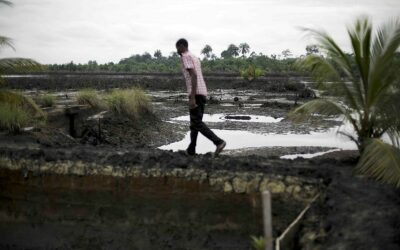Resilient response
step change
The green new deal
Around the world governments are intervening in the economy in ways that would have once seemed unimaginable. This blog thread explores the responses to the pandemic emerging around the world, and the policy proposals and practical approaches that might see us emerge, re-set and equipped to respond to the interlinked crises in climate, nature and inequality.
Lessons from Lockdown: The possibilities of rapid change
This report brings together lessons from the experience of the Covid-19 pandemic ranging across our transport and food systems, working life, arts, culture and consumerism, nature, the logistical challenges of achieving rapid change, mutual aid and leadership during crises by communities. It reveals that people can act rapidly, using the best information at the time, and focus effort and resources with laser-like accuracy where they were needed. The same can be done in the challenge of preserving a habitable climate.
Lessons from Lockdown: Living with less stuff
During lockdown many people have adapted to create new, different, ways of living that turned out to be less wasteful, more thoughtful and kinder on our environment. And, given that ecological decline creates conditions for pandemics, how especially in relatively wealthy countries, better lives are possible with less ‘stuff’.
Lessons from Lockdown: More space for people and nature
Responses to the coronavirus pandemic showed that we can quickly make more space for people and nature in our towns and cities. This briefing on lessons from lockdown looks at how that was done. The measures are increasingly important as people become more aware of a dramatic global decline of plant and animal numbers and how habitat loss drives the spread of viruses between animals and humans
Lessons from Lockdown: Looking after each other better
The first of the the Rapid Transition Alliance’s Lessons from Lockdown explores what the national lockdown taught us about how we can look after one another better. The way in which individuals, organisations and governments responded to benefit the wider community points the way toward a world where this way of working could be the new norm.
Investing in jobs and climate is key
In a letter to the Guardian, Green New Deal Group members Richard Murphy and Colin Hines argue that the government’s covid recovery plan should help fund the employment of the millions of increased staff needed across all social sectors, from more care and health workers to teachers and police, while also funding investment in new climate-friendly infrastructure projects, such as making the UK’s 30m buildings carbon neutral and adapting existing infrastructure to deal with future heatwaves and flooding.
Green shoots: the best books to inspire hope for the planet
Writing for the Guardian, Green New Deal group member Ann Pettifor suggests books that offer hope for the future and the Green New Deal. Just as in our time, the US in 1933 was confronted by an ecological disaster: the dust bowl. It’s an environmental tragedy central to John Steinbeck’s The Grapes of Wrath, written while the author benefited from a New Deal federal arts grant. Neil M Maher’s 2007 Nature’s New Deal tells the forgotten history of the New Deal’s attempt to green the American south. There was much that was downright wrong about Roosevelt’s racial and gender-segregated Civilian Conservation Corps. But Nature’s New Deal shows how we can chart a path out of the current crisis that leads to a future in which we can all flourish.
The challenge we are currently facing is unprecedented in its scale, nature and impact. Around the world governments are intervening in the economy in ways that would have once seemed unimaginable. This blog explores the responses to the pandemic emerging around the world, and explores the policy proposals and approaches that might see us emerge, re-set and equipped to respond to the crises in climate, nature and inequality
Redirect Sizewell C funding to the Warm Homes Plan, say campaigners
Redirect Sizewell C funding to the Warm Homes Plan, say campaigners Campaigners call on Rachel Reeves and Ed Miliband to stop Sizewell C and redirect its funding to generate ‘Warm Homes’ jobs in every constituency by the next election Building Sizewell C would...
How lucky Labour can see off populism
How lucky Labour can see off populism by Colin Hines 19th February 2025 The rise of populist parties in Europe and the rout of the Democrats came about because progressives in Europe and the US have no coherent and easy to understand response to voters’ desire for...
Finding the funds for the green transition
Finding the funds for the green transition By Colin Hines This originally appeared as a letter in the Guardian on 26th January 2025. It would appear that Rachel Reeves would rather put growth ahead of protecting our children’s future with net zero policies (Rachel...
How to pay for a Green New Deal
How to pay for a Green New Deal 4th March, 2024 The Green New Deal Group has published a series of briefings outlining some responses to the question ‘How can we pay for a Green New Deal?’ The five two-page briefings cover personal and corporate taxes, regulating...
A Green New Deal must have racial justice at its heart
The Runnymede Trust’s Nannette Youssef on why a new Parliamentary inquiry is looking at the connections between racism and the climate crisis.
MPs call on government to invest in infrastructure and local Green New Deals
MPs call on government to invest in infrastructure and local Green New Deals13th November 2023The co-chairs of the All-Party Parliamentary Group on the Green New Deal have written to the Chancellor, Jeremy Hunt, urging him to invest in a Green New Deal and reverse...

